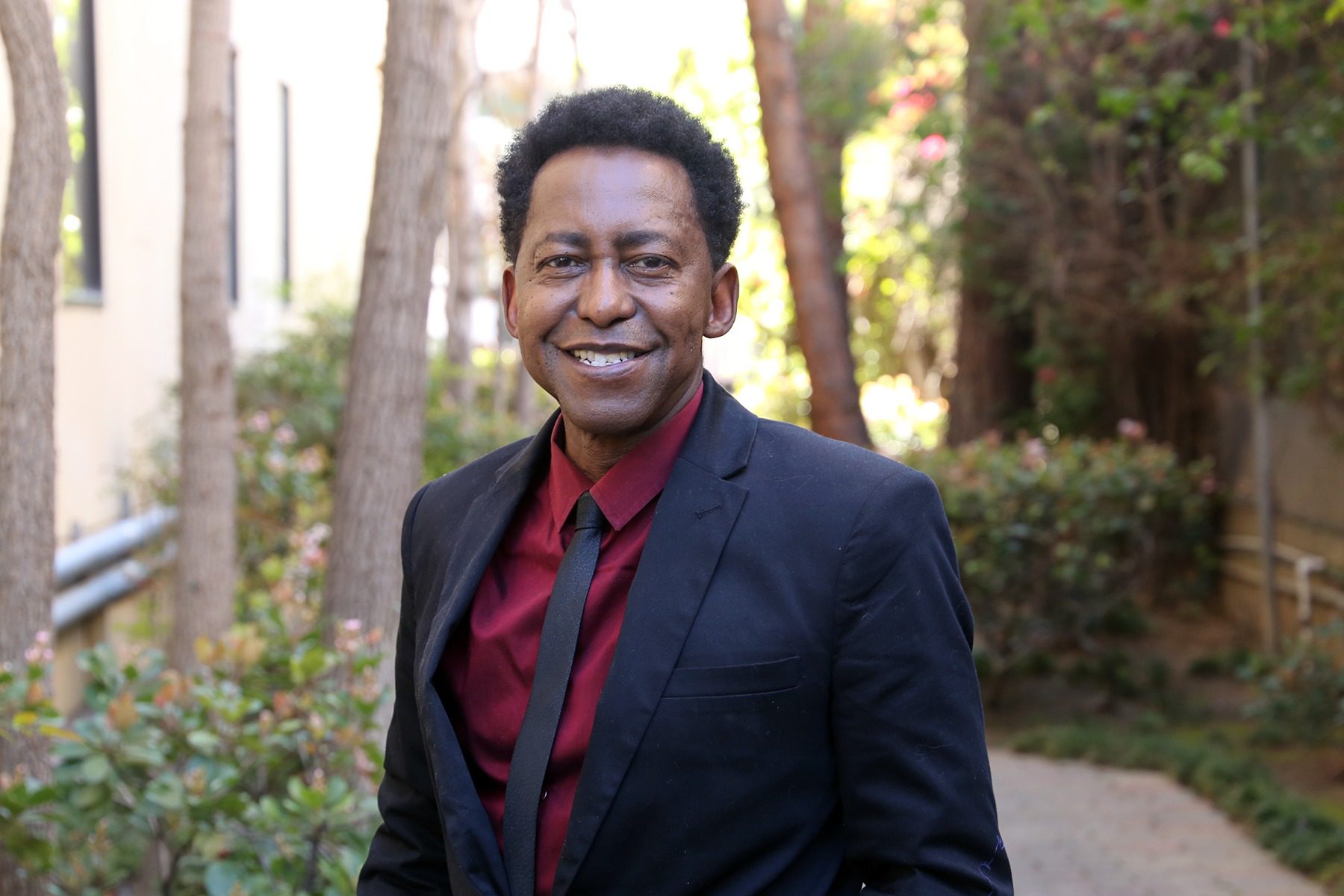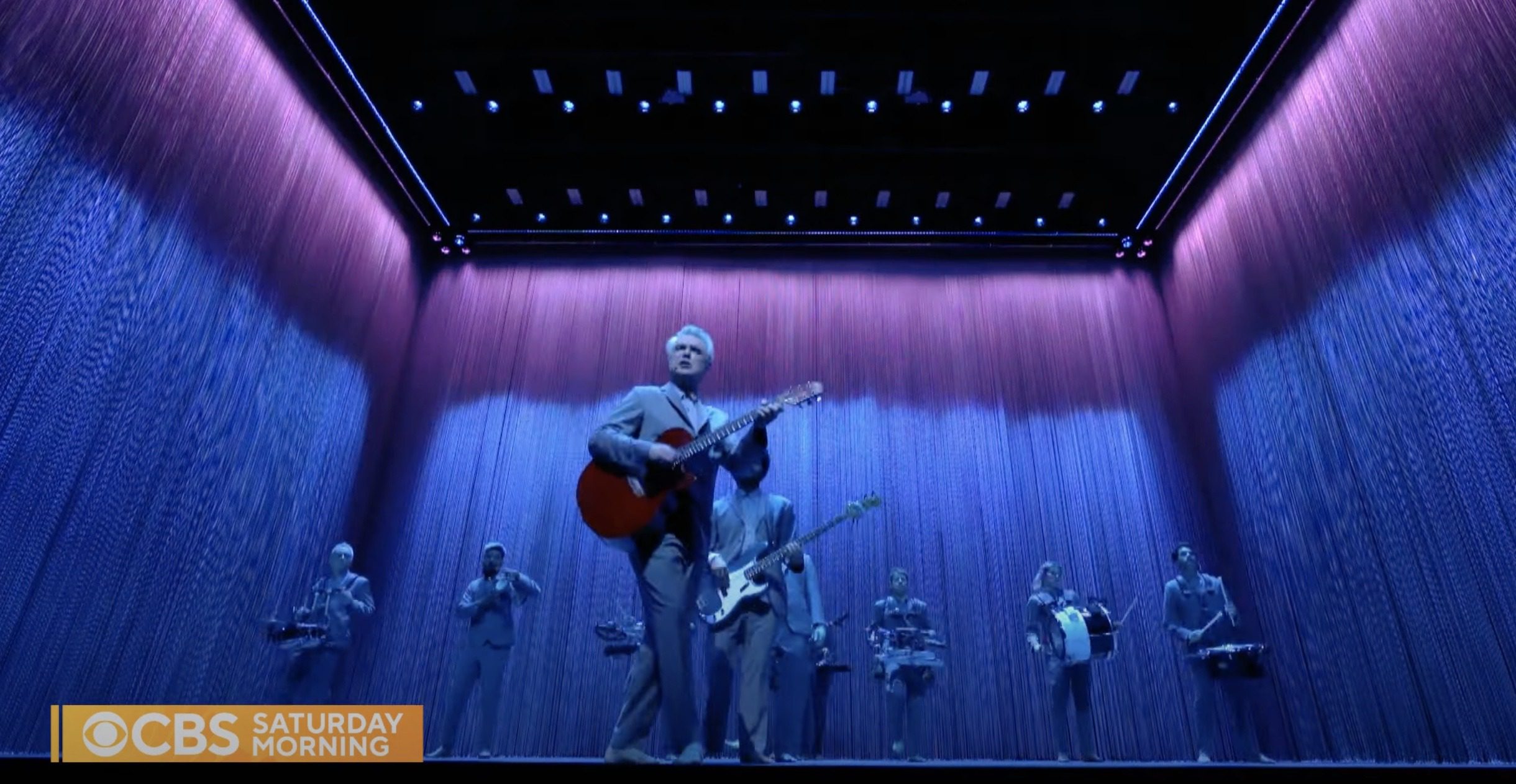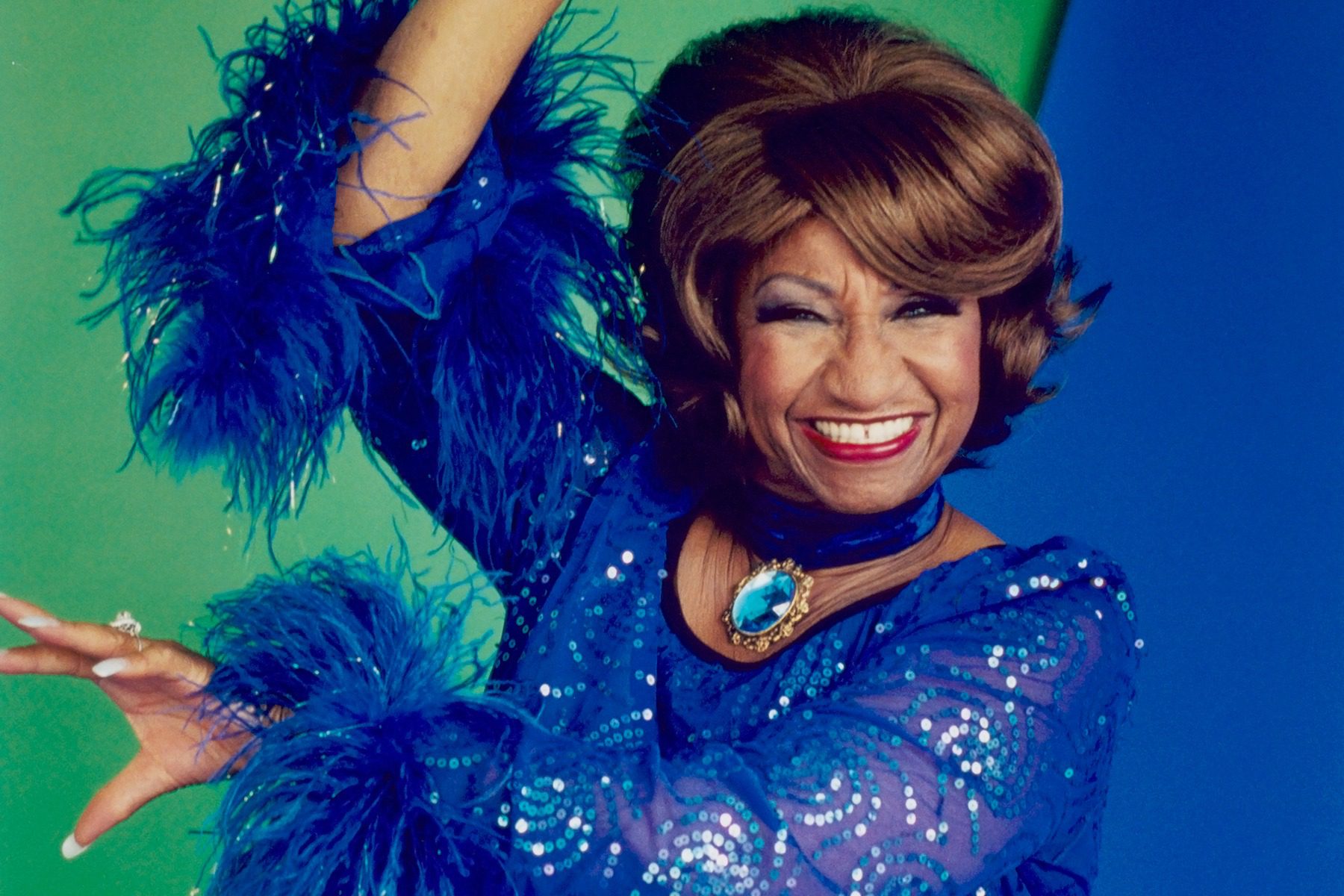
‘Compensation, Healing, and Closure’: One Man’s Quest for Reparations in the Music Business
As soon as Kevin Greene got up to speak, he noticed people walking out. Greene was in Washington D.C., about to begin his presentation on Black music, copyright law, and social justice at the annual conference for the Association of American Law Schools in the mid-2000s, when he saw a group of older IP scholars fleeing the conference room.
“I’ll never forget it. They just stood up and walked out, like they had something better to do,” says Greene, a professor at Los Angeles’ Southwestern Law School. “I was considered the odd duck in intellectual property.”
In the nearly two decades since then, Greene has gone from being a little-known, occasionally ostracized member of his field to one of the most sought-after scholarly voices on the music industry’s longstanding and ongoing racial inequities.
Working within the legal framework of intellectual property and copyright law, Greene has long advocated for the idea of reparations in the music industry — an idea initially perceived as too radical when he first proposed it 15 years ago.
blogherads.adq.push(function () {
blogherads
.defineSlot( ‘medrec’, ‘gpt-dsk-tab-article-inbody1-uid0’ )
.setTargeting( ‘pos’, [“mid-article”,”mid”,”in-article1″,”mid-article1″] )
.setSubAdUnitPath(“music//article//inbody1”)
.addSize([[300,250],[620,350],[2,2],[3,3],[2,4],[4,2],[640,250]])
;
});
“I don’t think my work was taken seriously at all,” he says. “That’s changed.”
In recent years, advocates, scholars, artists, and even the Justice Department of the largest state in the union have increasingly explored the idea of reparations as one of several possible sweeping reforms to a music industry founded on the exploitation and appropriation of Black artists’ intellectual and creative work. Greene publishes much of his work in niche scholarly publications like The Journal of the Copyright Society of the USA, but his work has caught the attention of industry leaders, governmental task forces, and musicians like George Clinton (his former client).
Greene is merely stating, in legal and scholarly terms, what artists and their heirs from Bessie Smith to Public Enemy have articulated in their own words over the past century: American copyright law, due to a number of intrinsic and embedded qualities that devalue creative practices like improvisation and the oral tradition, has left Black artists particularly vulnerable to what Greene calls “under-protection.” “They’d just give me a bunch of words, I’d make up a song! The rhythm and everything,” Little Richard told IndieLand in 2004. “I didn’t get a dime for it.”
Professor Peter Menell, a prominent intellectual copyright scholar, sees Greene as a leading figure in the field. “These structural issues can’t be ignored — they’re there, and there’s a lot of evidence, and Professor Greene was on top of this issue before many others were,” says Menell, who advised the Marvin Gaye estate when its infringement lawsuit against Robin Thicke and Pharrell Williams, the songwriters of “Blurred Lines,” was appealed. “He deserves credit.”
Greene’s work is now much more influential than when he began, not only within academia but outside of it as well. This past fall, he provided testimony about the relationship between copyright law and cultural appropriation to the California Reparations Task Force, a state-designated committee commissioned in 2020 that represents the largest-scale reparations task force in the history of the country. This summer, the task force will be issuing a report based on its findings, with Greene being one of many scholars whose work will be cited.
“Professor Greene made an excellent argument for how intellectual property deprivation fits into the reparations claim for Black Americans,” says Kamilah Moore, the chairperson of the California task force. “I anticipate the task force developing reparations proposals that account for historical and present-day racial inequities in the music industry and entertainment space at large.”
blogherads.adq.push(function () {
blogherads
.defineSlot( ‘medrec’, ‘gpt-dsk-tab-article-inbody2-uid1’ )
.setTargeting( ‘pos’, [“mid-article2″,”mid”,”in-article2″,”mid-article”] )
.setSubAdUnitPath(“music//article//inbody2”)
.addSize([[300,250],[300,251],[620,350],[2,4],[4,2],[3,3],[2,2]])
.setLazyLoadMultiplier(2)
;
});
These days, Greene gets invited to speak at conferences with big names like JaQuel Knight, Beyoncé’s longtime choreographer. Last year, he spoke on a panel at USC with music industry veterans including attorney Ron Sweeney and record exec Binta Brown. When he first spoke at the university in 2020, he noticed a number of federal judges in attendance, which he considered to be “a breakthrough moment.”
“I think [reparations are] a really good idea,” Sweeney, who has represented James Brown, Puff Daddy, and Lil Wayne, said at the 2021 panel. “There needs to be a movement…and every Black artist and every other artist would get behind that…It could force the record companies to write a big check.”
Greene’s work is part of a long, ongoing continuum of academic study of race, copyright, and music alongside scholars across disciplines like Lateef Mtima, Rob Bruneis, Olufunmilayo Arewa, Anjali Vats, and Matt Stahl. In recent years, his work has become cited more and more and is seen as increasingly influential.
But these conversations aren’t just taking place on university panels. Artists like Jeff Tweedy have used the word “reparations” to discuss their own approach to racial justice and philanthropy, while mainstream publications are now publishing op-eds in support of the idea.
“The repair this nation desperately needs and deserves must extend beyond economic reparations and be inclusive of intellectual reparations: The purposeful and public recognition and acknowledgement of the creations, inventions and ideas of formerly enslaved people and their descendants,” Marcus Anthony Hunter, a UCLA professor and author of the forthcoming book Radical Reparations, wrote last year in USA Today. “The United States has an unfulfilled obligation to credit Black people properly for their intellectual property.”
One of Greene’s primary arguments is that music industry reparations would not only be more logistically feasible from a record-keeping standpoint than national, slavery-based reparations; such a system would also be immune to potential criticisms that it is dealing with centuries-old injustices.
“One thing that people object to with reparations is this idea that, ‘My ancestors were slaveholders; I had nothing to do with this,’” says Greene. “In the music space, that is a harder argument to make, because it’s an ongoing harm, rather than an ancient harm. Because copyright terms are so long, a lot of these works [that have never been properly credited to their originators] are still valuable. They’re still generating income.”
blogherads.adq.push(function () {
blogherads
.defineSlot( ‘medrec’, ‘gpt-dsk-tab-inbodyX-uid2’ )
.setTargeting( ‘pos’, [“mid”,”mid-articleX”,”in-articleX”,”mid-article”] )
.setSubAdUnitPath(“music//article//inbodyX”)
.addSize([[300,250],[300,251],[3,3],[620,350],[2,2]])
.setLazyLoadMultiplier(2)
;
});
“If we were going to do reparations,” says Greene, “one of the easier spaces to do it would be in the music space.”
Greene traces his interest in copyright back to the Black barbershops of the Bronx, where his extended family lived, and New Cassel, Long Island, where he grew up. “I remember hearing the barbers and my uncles talk about the treatment of African-American artists, and even though they didn’t understand copyright law, they understood that there were massive compensation issues,” he says. “That’s what really inspired me to think about this, and, once I had the analytical tools from law school, to address it.”
For the first few decades of his career, Greene’s work was often dismissed by his peers as mere advocacy work. “The phrase a professor used was, ‘You have an agenda,’” Greene says. “I was like, you guys all have an agenda.’”
After being inspired by his time as a junior lawyer working for a firm that represented clients like Public Enemy, Redman, and Bobby Brown, in 2008 Greene, by then a professor, published a little-noticed article for a law journal titled “‘Copynorms,’ Black Cultural Production, and the Debate Over African-American Reparations.” In the paper, written against the backdrop of the piracy wars of the aughts, Greene argued that the music industry had no moral ground to stand on in its battle over Napster-era copyright protection, given its decades-long history of systemically denying Black artists and songwriters the rightful ownership of their art.
But Greene went further, arguing that given the timeliness of the piracy debate, the time was now for the music industry to consider wholesale reparations.
“A key component in developing ‘copynorms’ is atonement for the mass appropriation of intellectual property rights for African-American artists,” Greene wrote. “An atonement model of redress, drawn from scholarship on African-American reparations, can provide needed compensation, healing, and closure to a dark chapter in American history.”
Drawing on critical race theory scholarship, Greene’s basic argument is that the American copyright system had systemic features that left it vulnerable to exploitation by a white-controlled music industry. “The structure of copyright law, with its emphasis on written reduction to form and minimal originality,” he wrote in an earlier article, “disfavored Black artists and particularly Black innovators.”
blogherads.adq.push(function () {
blogherads
.defineSlot( ‘medrec’, ‘gpt-dsk-tab-inbodyX-uid3’ )
.setTargeting( ‘pos’, [“mid”,”mid-articleX”,”in-articleX”,”mid-article”] )
.setSubAdUnitPath(“music//article//inbodyX”)
.addSize([[300,250],[300,251],[3,3],[620,350],[2,2]])
.setLazyLoadMultiplier(2)
;
});
It was for that reason, Greene wrote in 2008, that “reparations claims…would go beyond mere royalty accounting or copyright infringement lawsuits. The point would be to engender redress, healing and transformation.”
Greene became more resolved about his proposal several years later, circa 2014, when he began consulting George Clinton in the funk-soul legend’s (ultimately unsuccessful) lawsuit against his former law firm that centered around the ownership of his sound recordings.
“Meeting George Clinton changed my life, and it changed how I view the IP system,” says Greene. “Clinton is one of the most innovative artists of our generation, and that’s supposedly what copyright law stands to identify: originality and creativity….One of the major things I learned is that we have a very hostile judicial system in terms of how they treat artists in court.”
Citing his colleague Roy Brooks, Greene believes that any meaningful form of redress or reparations in the music industry must begin with an apology. In addition to more obvious institutions like major labels, Greene is particularly interested in the role of the United States Copyright Office, and believes that an apology or acknowledgement from the office of the role American copyright law has played in the unequal treatment of Black musicians could be transformative.
(“The Copyright Office is committed to making the copyright system as understandable and accessible to as many members of the public as possible, including individuals and small entities as well as historically undeserved communities,” a spokesperson for the U.S. Copyright Office said in a statement. “This is a primary goal in our new strategic plan…The Office regularly works with creators and their organizations at all levels, from one-on-one conversations with artists, authors, and musicians to meetings with groups of all types and sizes, to address questions and hear concerns.”)
Greene favors an accommodationist approach towards music industry reparations that he acknowledges some will disagree with. One of his fundamental arguments is that, because the music industry’s reputation amongst Black musicians has been decimated to the point where many artists are unwilling to sign record deals, reparations are, in fact, in the music industry’s best financial interest. “Artists call me all the time, and a persistent theme is that they’re terrified that their work is going to be appropriated, because they know about this history,” says Greene. “Some of them won’t even release stuff, or they lost heart, and that’s all lost revenue for the industry.”
blogherads.adq.push(function () {
blogherads
.defineSlot( ‘medrec’, ‘gpt-dsk-tab-inbodyX-uid4’ )
.setTargeting( ‘pos’, [“mid”,”mid-articleX”,”in-articleX”,”mid-article”] )
.setSubAdUnitPath(“music//article//inbodyX”)
.addSize([[300,250],[300,251],[3,3],[620,350],[2,2]])
.setLazyLoadMultiplier(2)
;
});
Another potentially surprising tenet of Greene’s ideas is the argument that all artists stand to benefit from his proposed reforms, even if Black artists — who, he argues, have been disproportionately disadvantaged by copyright law — would see the greatest relative benefits. “Far from undercutting the premise that Black artists suffered super-exploitation,” he has written, “the dynamics of appropriation in the music industry suggest that the interests of blacks and whites may converge in ways that they do not in other reparations contexts.”
And while Greene’s legal peers often land on different scholarly conclusions as to how American copyright law specifically disadvantages Black artists, and how that could be changed, his work is now part of a growing consensus that American copyright law does not, and cannot, exist outside of the larger systemically racist structures in the United States.
At the moment, Greene is shifting his focus towards a debut novel that he hopes will introduce his life’s work to a new type of reader. The fantasy novel, titled Copyright House of Horrors, begins with a fictional character, based on Greene’s son, being led into a fantastical netherworld where he learns about copyright injustice and cultural appropriation through encounters with Prince, Madonna, Michael Jackson, and Bessie Smith.
Greene hopes that his future novel is yet another small piece of a larger awakening around issues like copyright injustice and reparations.
“The word ‘reparations,’ historically, has been toxic, but George Floyd changed things,” he says. “People are willing to think about things in a different way now.”




